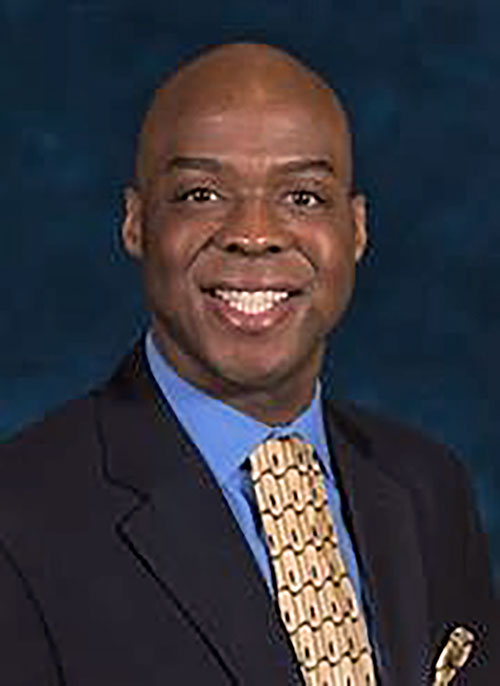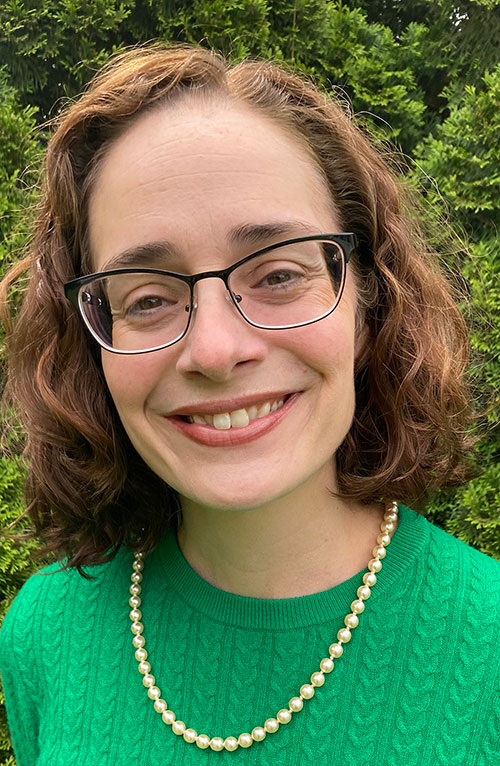- AcademicsDegree TypeLocations
- Admissions
- Tuition & Aid
- Student Life
- About UNT
- Research
- Athletics
- Giving
Faculty-in-Residence allows faculty to engage with students where they live
Did you ever wonder why you might see a faculty or staff member who always seemed to be on campus? You may have even thought “What, do they live here or something?”
The answer just might be a resounding ‘Yes!’
The Faculty-In-Residence program allows professors or staff to live on campus among students, making it easier for students to connect with their teachers and mentors outside of the classroom.
UNT’s Faculty In-Residence program aims to create a sense of community and cultivate an inclusive environment of respect, belonging and innovation and strengthen connections between students’ academic and residential learning. This program encourages an atmosphere where learning happens not only in the classroom but also in everyday interactions.
 Wesley Phelps
Wesley Phelps
Director of Undergraduate Studies for the Department of History
Associate Professor of History
Associate Professor Wesley Phelps is a bit of a celebrity on campus.
The director of undergraduate studies for the History department lives among students in Rawlins Hall. One night, the Resident Assistants (RAs) in Rawlins threw a luau-themed party, to which a resident brought out a karaoke machine. That night, Phelps’s performance of Snoop Dogg’s “Gin and Juice” spread like wildfire on social media.
“I think I killed it,” he says. “Students still bring it up to my daughter when she mentions that her dad lives on campus.”
Phelps has always been a part of UNT, earning his bachelor’s degree in 2000 and then returning to teach in 2019. He is relatively new to the on-campus life. In the summer of 2023, he moved in to Rawlins Hall with his wife Devin, while his freshman daughter moved into Kerr Hall.
For the students living in Rawlins, Phelps is just another neighbor. They regularly see him participating and hosting events with the RAs, walking over to watch a football game, eating at the dining halls and holding office hours in the lobby. He even started an undergraduate history club to connect with students in a casual setting and allowing him to share his passion for history.
“I think I'm always looking for ways to interact with students outside of the classroom. Living on campus, I do feel a lot more connected to the student body in a way I don’t think you get to when you just go to (campus) teach your classes. There is just a way of relating to each other outside of the classroom that I really like. They don't treat me as their professor, and I enjoy that.”
Phelps sometimes ends up spending more time at Rawlins than his own office in Wooten Hall.
“I am still figuring out how to balance my work and personal life,” he says. “It’s strange being at my workplace all the time, but I try not to do any work when I am at my apartment in Rawlins.”
Phelps also enjoys persuading his colleagues to share his experience by bringing them to the events he hosts for students.
“I love being able to be there for the students. I always encourage other faculty members to consider living on campus and think about what unique things they have to offer to the students.”
 Cornelius Anderson
Cornelius Anderson
Assistant Professor of Practice and Director of the Pathways for Future Teachers
College of Education
Being a commuter student throughout his time as an undergrad at Texas Women’s University, Cornelius Anderson always wondered what it would be like to live the college experience on campus. Now, as an assistant professor in the department of Teacher Education & Administration living in Kerr Hall, he is experiencing that firsthand.
“My neighbors are 18, 19, maybe 20-year-olds,” he says, “Just engaging in events and activities with them makes me feel like I am going back in time, when I was their age and living the full student experience for the first time.”
Anderson is also a full-time Ph.D. student and the director of UNT’s Teachers Pathway program. Living in Kerr Hall, he oversees the Eagles Teach community cohort, designed for freshmen majoring in Education with plans to become teachers.
“I wanted to be close to these students who are likely going to take the courses I teach. It just helps build a great sense of community and helps me connect with them on a personal level, outside of the classroom.”
Being a professor and a full-time student can be hectic. For Anderson, being an on-campus resident for the past three years has provided a way to balance work and personal life.
“Living on campus allows me that opportunity to not have to juggle too many things because I have everything I need here. I can work, study and socialize here. It’s nice just to be able to leave Kerr Hall and walk across the street to Matthews Hall, where my office is.”
In his free time, Anderson enjoys taking a stroll around campus, exploring new places to eat and going to the Syndicate to listen to the jazz bands play.
He encourages his fellow colleagues to explore the Faculty-In-Residence option.
“I think for those that want to become faculty-in-residence, it's a great opportunity to be a role model and to pour into students and help them on their growing up journey,” he says. “It’s just like having a lot of kids who could use your support.”
 Sarah Ryan
Sarah Ryan
Director of Law Librarianship program
Associate Professor of Information Science
Sarah Ryan is not your average professor. For many students residing in Honors Hall, she’s like family.
Ryan, who is the director of the Law Librarianship program at UNT and an associate professor of Information Science, has been living on campus among students with her wife and their 6-year-old-twins for the past two years.
“My position right now means that I work exclusively with graduate students, and I just felt like I wouldn’t really feel like a part of UNT unless I interacted with undergraduate students,” she says. “So, when this opportunity came, I took it gladly.”
Her favorite part is watching her twins soak in everything around them.
“You know, the campus is amazing through little kid eyes,” she says. “The best part is they get to interact with so many different students. Their favorite student this year is a biology major who wants to be a herpetologist who showed them pictures of different frogs that they’ve learned about.”
Over the years, Ryan has been a helping hand, a listening ear and a mentor to her many “neighbors” on campus. Last spring, she was part of two students’ journeys to figure out their lives after graduation. One student was a percussionist applying to graduate programs and the other was a biomedical engineer student applying to a prestigious fellowship. From listening to their fears to celebrating their wins, Ryan was by their side through it all.
“When they both got into their respective programs, I was the second person to find out after their families. It's just so cool to be that person in several people's lives.”
Living on campus also has given her a new outlook on the campus community.
“This job has given me a window into how amazing our community directors and our RAs are. They are some of the smartest, hardworking and caring people on campus. I wish people knew how amazing they were, it’s been so rewarding being able to work with them.”
She is frequently seen participating in on-campus events and even helping students during move-in days.
“I know I'm part of the community because I'm celebrating individual students’ wins and achievements, because I'm seeing their struggles and that makes me feel connected to the whole university.”